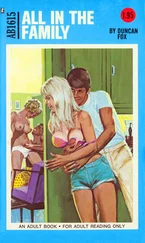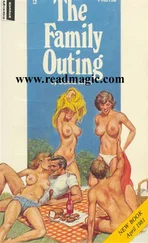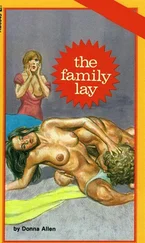Her two teenage daughters are sixth formers at Beaconwood and regularly babysit for other school families. Disconcertingly, their names are Leonie and Leanne. Alex and I had an argument about this shortly after Ellen started at the school. I said, “There’s something sinister about effectively giving your two daughters the same name,” and Alex said, “Why do you care? That’s more sinister.”
Helen breathes in sharply when she sees me on the doorstep. “Oh. Justine.” Her shaky smile arrives several seconds too late. It’s not convincing and leaves me in no doubt that my status has changed from Esteemed and Valued Parent to Unwelcome Pariah. In the space of one school day. Unbelievable.
I smile as innocently as I can manage. “I’ve just popped in with something for Ellen—hope that’s okay!” I try to walk in as I have so many times before.
Helen stands in front of me, blocking the way. She holds out her hand. “I’ll make sure she gets it, whatever it is.”
I widen my smile by an inch or so. Time to have some fun . “Whatever it is?” I repeat Helen’s words back to her. “You know what it is? It’s a watermelon.”
“A watermelon?”
“Yes. You know . . .” I use my hands to convey the approximate size. “Green on the outside, pink on the inside. A big healthy fruit—at least thirty-seven of your five a day. That’s the official watermelon slogan, I believe. Anyway, it’s Ellen’s lucky fruit. I bet you didn’t know she had one, did you? Well, she does.” I ditch the smile and say, “I’m not going to give it to you. I’m going to come in and give it to Ellen myself. Remember those other times I’ve walked right in and everyone thought it was fine? So . . . I’m going to do that—the same thing I’ve done before—again.”
Helen stares at me, stunned, as I stroll past her into the building. Lesley Griffiths prepared her for questions about George Donbavand, no doubt; she didn’t tell her what to do in the event of a fictional watermelon attack.
Blatant lies are horrible. They’re also fascinating: the way I can go nowhere near a watermelon for more than a decade, physically or mentally, and then suddenly plant one in Helen’s mind that’s impossible to dislodge. She knows I’m lying—I spoke in a way that deliberately drew attention to the ludicrousness of my lie. If everyone else around here can tell lies that aren’t at all convincing, why shouldn’t I?
“Justine,” Helen calls after me. “They’re not there.”
I turn around.
“They’re at swimming, the whole of Year 9. The buses won’t be back for another half hour.”
“Right.” I forgot today was swimming day. “Don’t worry—I’ve brought the watermelon in a plastic bag. I’ll hang it on her peg.”
Helen returns to her desk, temporarily defeated. She’s waiting for me to leave her alone so that she can pick up the phone on her desk and alert Lesley to the emergency. Which means I might not have long.
I move fast through hallways full of children’s paintings and sculptures. The two Year 9 classrooms—9G and 9F—are empty. Mr. Goodrick and Mr. Fisher won’t be around if the children aren’t. I move on to Year 8’s part of the building, where lessons are in full swing. I’m not sure I want to barge in and interrogate any teacher in front of a class, though I will if I have to. One of them taught George Donbavand last year, presumably.
Kendra Squires would be a good person to corner, if I can track her down. She’s one of those drifter-teachers, not attached to a particular class. She’s also deferential and eager to please. I can’t believe I wouldn’t be able to drag the truth out of her, whatever strictures Lesley Griffiths has put in place. Even if all I get is lots of tears and an admission that there’s a truth she’s not allowed to tell me—that would be a start.
“Mrs. Morrison!” booms a voice behind me.
It’s Mr. Goodrick, in paint-splashed jeans and a Jayhawks T-shirt.
“Not really,” I say. “My name’s still Justine Merrison, and I’m still Ms., not Mrs. Keep trying!”
“I’m not trying, that’s the problem.” Mr. Goodrick chuckles. “You’re too easy to wind up.”
I laugh as if I appreciate his banter. “True. I am exceptionally easy to wind up. You know who’s done it most recently? Lesley Griffiths. Why haven’t you gone swimming with the rest of them, by the way?”
“It’s Art Week. They can’t run Art Week without their very own Renaissance man”—Goodrick points at his face with both index fingers—“so AAG’s filled in for me at the pool.”
He means Ayesha Al-Ghannam, Beaconwood’s Head of Seniors and sex education pioneer. She’s probably interrupting the scheduled front crawl at this very moment—pulling spotty fourteen-year-old boys out of the water to make sure they haven’t forgotten about polycystic ovaries.
“I’d better dash,” Goodrick says. “Good to see you, Justin.”
“Wait. I need to ask you something.”
“Be quick, then. Seriously, I’m out of time.”
“George Donbavand.”
“Who? Sorry, never heard of him. George . . . Dunnerband, did you say?”
He might be God’s gift to art, but he’s no actor.
“Donbavand,” I repeat. “He was a pupil here. He’s recently been expelled.”
“No. Uh-uh. I’ve never heard that name.”
“You’ve never heard of George Donbavand?”
“Nope. No one’s been expelled, far as I know.” Goodrick lets out a little whistle—because, as we all know, those who whistle innocently must be innocent.
I want to jump on top of him and beat him to a puree.
“You have no idea how obvious it is to me that you’re lying,” I say. “Just as, this morning, it was clear to me that Lesley was lying. It couldn’t be more obvious if you all wore T-shirts emblazoned with the words ‘We’re all lying!’ Exclamation mark.”
“I have to go, Justine Merrison. See?” He grins. “I’m not that bad with names—I’d remember a George Donbavand. There isn’t one at Beaconwood. There never has been.”
What can I do to stop him walking away? Nothing. My imaginary watermelon, so effective against Helen, is useless now. I can’t throw it at Mr. Goodrick’s head and knock him out.
Marilyn Monroe .
Why did that name come into my mind? That’s right: the pictures on the wall behind me. Did I see . . .
I turn and look. Marilyn’s one of the better efforts. Beneath her face—half photograph, half oil painting—is the handwritten name of the artist: “Fleur D.”
“What about Fleur?” I call after Craig Goodrick.
He stops, but doesn’t turn around.
He doesn’t know what to say. Lesley told him to lie about George, but she didn’t mention Fleur. He has to decide for himself, without knowing what she’d want him to do.
“Fleur Donbavand, sister of the nonexistent George,” I say. “A pupil at this school. Look, this is her portrait of Marilyn Monroe. The one that says ‘Fleur D’ at the bottom.”
Goodrick stuffs his hands into his pockets. “Yeah, Fleur,” he says with not a trace of guilt. “She’s a talented artist.”
“So that I’m clear: you’re talking about Fleur Donbavand?”
“Yeah. She’s in Year 12.”
“Yet not two minutes ago you pretended not to recognize the surname Donbavand. Dunnerband, you said.”
“I didn’t hear you properly.” He stares at me defiantly.
“Still. When I repeated the name, you didn’t jump in with, ‘No, I don’t know a George but I do know a Fleur Donbavand.’ ”
“I was in a hurry. You asked about George. I don’t know any George Donbavand. I answered the question you asked. You didn’t ask about Fleur so I didn’t bring her up.” Goodrick starts to walk away again.
Читать дальше











